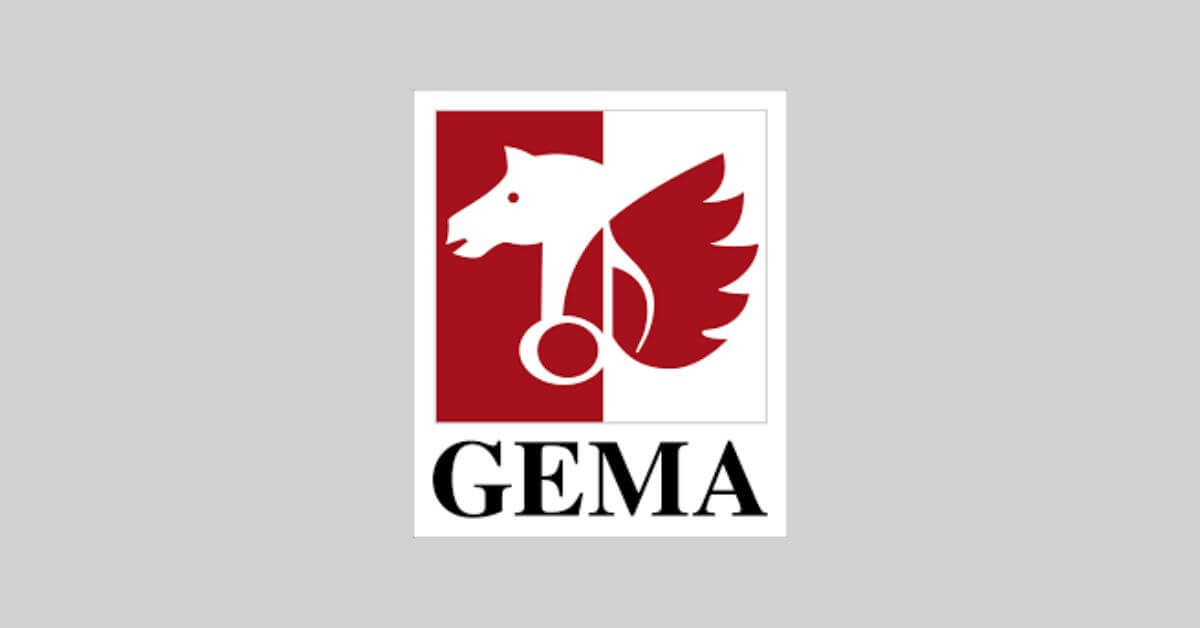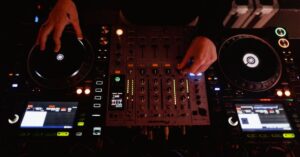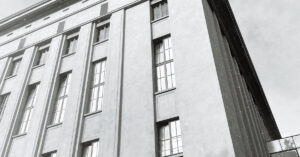I recently completed my degree in Music Management and wrote my bachelor’s thesis on royalty distribution mechanisms in night clubs. My research focused on how the current system works and how it could be improved in the future. Since I studied in Germany, I concentrated on the situation there. While the specifics may vary in other countries and with other performance rights organizations, GEMA prides itself on being a leader in this field. As a result, the issues are likely similar elsewhere, making this topic relevant beyond Germany.
The initial problem
Performance rights organizations like GEMA represent authors and composers, ensuring they receive the royalties they’re entitled to. In practice, this means that whenever one of your tracks is played, reproduced, or streamed anywhere, license fees are generated, which these organizations collect on behalf of the creators. For a more detailed explanation, feel free to revisit my previous posts on royalties in general and performance rights organisations where I break down these concepts further.
Since these organizations date back to a time when orchestras performed from sheet music at concerts, the digital age and new forms of music presentation have introduced some challenges. Unlike traditional concerts where the setlist is predetermined, electronic dance music, especially techno, is performed in long DJ sets, making it difficult to predict which tracks have been played.
GEMA collects license fees from all nightclubs in Germany that play music, regardless of genre, and must distribute these fees to the creators whose music was played in these clubs. So, how does this process work?
Firstly, it’s important to note that GEMA is responsible for all genres and events, with electronic dance clubs representing a small minority. As a result, the money collected from clubs like Tresor, Berghain, and Watergate is pooled together with the funds from a rural disco somewhere in Bavaria. At the end of the year, this large, genre-spanning fund must somehow be distributed among all the creators.
You might think the solution is simple: just record every track that’s played, and then royalties could be calculated per track, similar to how streaming services operate. Unfortunately, we’re not quite there yet with the technology, so GEMA currently relies on an estimation system.
GEMA has installed track recognition devices in approximately 100 clubs (the exact number is hard to find) to monitor the output signal from the mixer and randomly sample the tracks for two hours per club night. Using software similar to Shazam, they identify these tracks. These samples are then compiled into a list of tracks and artists at the end of the year. To extrapolate these samples to the entire country’s clubs, GEMA uses a statistical method developed by the Institute for Economic and Social Statistics at the Technical University of Dortmund.
In simple terms, if your tracks happen to be included in the sample because they were played in a club with a monitoring box during that two-hour window, you can expect to receive royalties, as the estimation assumes your tracks were also played in other clubs. If not, well, you won’t receive anything from that pool.
Criticism
While this method might work well for mainstream pop songs and capture the average tracks, niche genres that are only played in a few small clubs get completely overlooked. I understand that underground electronic music genres like techno make up a very small portion of the music played overall and, therefore, don’t hold much weight with GEMA. However, every creator, regardless of genre, has the same right to fair compensation, and I believe it’s the responsibility of PROs to ensure this is upheld. Therefore, here are my criticisms of the current system and some suggestions for how it could be improved in the future.
Lack of transparency
A major criticism of the system from an artist’s perspective is the lack of transparency. GEMA keeps the exact locations of these monitoring boxes secret, claiming this is to prevent anyone from influencing the sample. On the other hand, club owners can voluntarily contact GEMA to have one of these boxes installed and even receive a discount on their licensing fees in return. This raises the question of how representative the selection of clubs really is and how many “underground” clubs are actually included in this monitoring.
Sampling
For electronic music genres, the size of the sample is, of course, far from satisfactory. A good rave can go on for several days, and capturing only 2 hours per evening doesn’t come close to reflecting the full range of tracks played. To create a fair system for artists from all genres, ALL tracks played at an event need to be tracked.
Possible solutions
As I briefly mentioned earlier, the solution in theory is quite simple. Every track played needs to be recorded and identified. In today’s age of AI and supercomputers, this should be quite feasible. In my research, the following approaches have emerged as the most promising:
Pioneerdj
It’s no secret that Pioneer DJ has a monopoly in clubs worldwide. Every club features Pioneer players. These players have advanced to the point where they now include Wi-Fi and what not. The simplest solution would be to capture data on the played songs directly from the source. All the experts I consulted agreed that this would be the easiest solution and that it will eventually happen. Even GEMA is confident that accurate title tracking will be feasible in the future.
GEMA’s regulatory power
Since GEMA represents the rights of creators and grants licenses to clubs, it could, in principle, require clubs to participate in such a solution. For example, if GEMA were to develop a system in collaboration with Pioneer, it could mandate that clubs implement this system.
Knowledge
The final crucial point is education. Particularly in the nightclub scene, there’s a significant lack of knowledge. Many stakeholders are not informed about the issue and thus cannot take action or address it. Only when artists are aware of potential problems, they may put pressure on organisations such as PROs to improve the system. That is also why I publish posts on topics like this, as I am committed to raising awareness and breaking down seemingly complex issues into simple terms.







